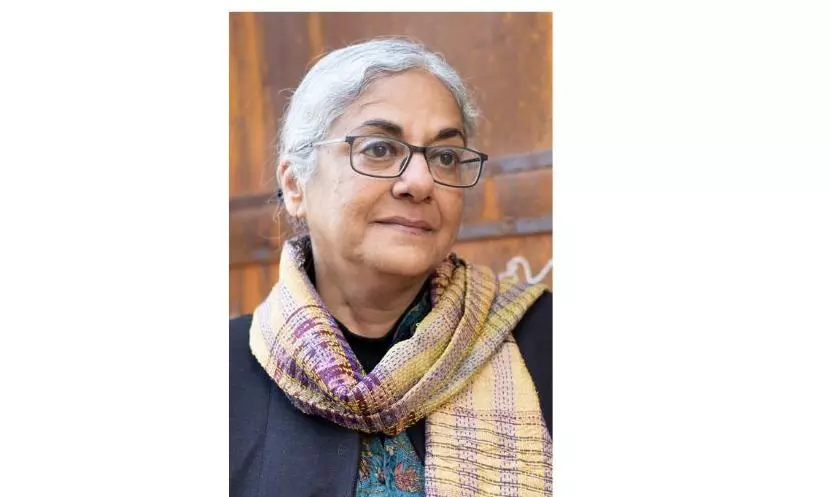India a Begumpura of reason & compassion: Githa Hariharan

Writer and editor Githa Hariharan, who successfully challenged the Hindu Minority and Guardianship Act in 1995 to uphold the rights of the mother, has an idea of India that she explores in her new book, This Too Is India: Conversations on Diversity and Dissent (Westland, 2024). In this conversation, she shares a bit of it with Sucheta Dasgupta: � �
Why would you want to centre dissent in your idea of India?
All of us agree that diversity is the ground India stands on. Indeed, to acquire any kind of knowledge, we need to begin with doubt, test received notions. At the day-to-day level, this is what dissent is — asking questions to gain a better understanding of a what a just society may be.
The book is my tribute to the Indian Cultural Forum which many of us from the cultural and academic communities were part of, from 2015 to 2022. I was lucky enough to have many conversations in the process. I chose the 20 conversations in this book because they hang together.
In your conversation with Shashi Deshpande, you open up the atmabhasa versus matribhasa debate. Where do you locate yourself in this binary? How bilingual (multilingual) are you and have you ever faced any identity dilemmas?
All of us are bilingual if not multilingual in our daily lives, whether we would pass an exam in any of these languages or not. As for linguistic identity dilemmas: I think of the fact that my Tamil mixes Malayalam and Tamil, or that my Hindi is ‘Bambayya’, as ‘normal Indian hybridity’, rather than a dilemma!
Two autobiographies, Bama’s ‘Karukku’ and Eknath Awad’s Strike a Blow to Change the World, act as conversation starters in your book. Can autobiography be a more powerful tool of social change than journalism or fiction?
There is an entire body of autobiographies and ‘witness literature’ around the world which inspires us with testimony to the courage and resilience of the human spirit. In India, dalit autobiographies are very much a part of this body of literature that each of us should read as part of our education, in and outside classrooms. This includes the work of Bama, Eknath Awad and Aravind Malagatti who are part of this book, but it also includes a long list of work ranging from books by Baby Kamble and P. Sivakami to those by Daya Pawar, Devanoor Mahadeva and Sharankumar Limbale. And this is just to name a few.
I must add though that any genre, whether an autobiography or a novel or a poem, and writing by anyone from any community, can carry a call for social change if it speaks powerfully to people and their deepest hopes and dreams.
Your conversation on Mahasweta Devi’s short story ‘Draupadi’ with Samik Bandopadhyay which was dropped from DU’s English honours syllabus spotlights the current conversation on women’s agency and freedoms. What is your advice to parents of daughters?
Exercising censorship on literature that is critical of violence and inequality — the abuse of any kind of power — harms everyone, from students to teachers. My advice to parents, teachers, and most of all, young people, is to read widely, exercise their own judgement, and hone their critical abilities. Education is supposed to teach us to think, to use our minds independently and wisely, not to be trained parrots.
Finally, what, in your own words, is the idea of India?
A mosaic that will never forget its foundational promise: the annihilation of caste and equality for every single citizen; a struggle for the best of diverse worlds, a Begumpura, in which both reason and compassion reign supreme.
